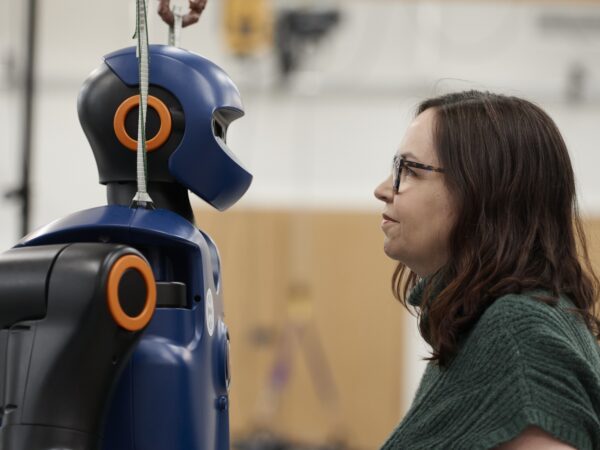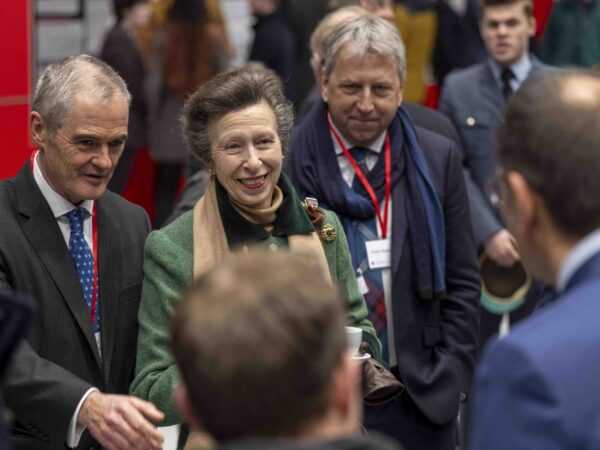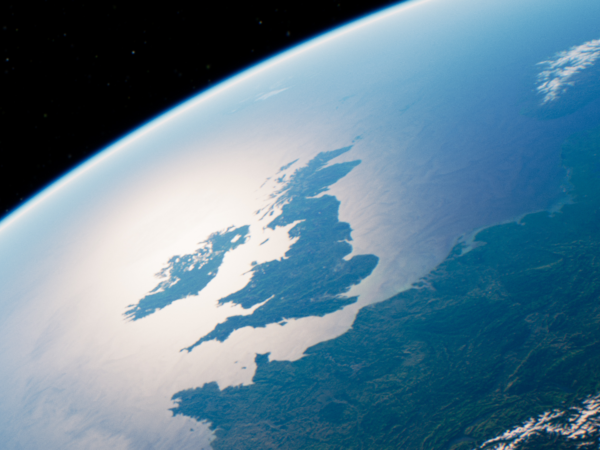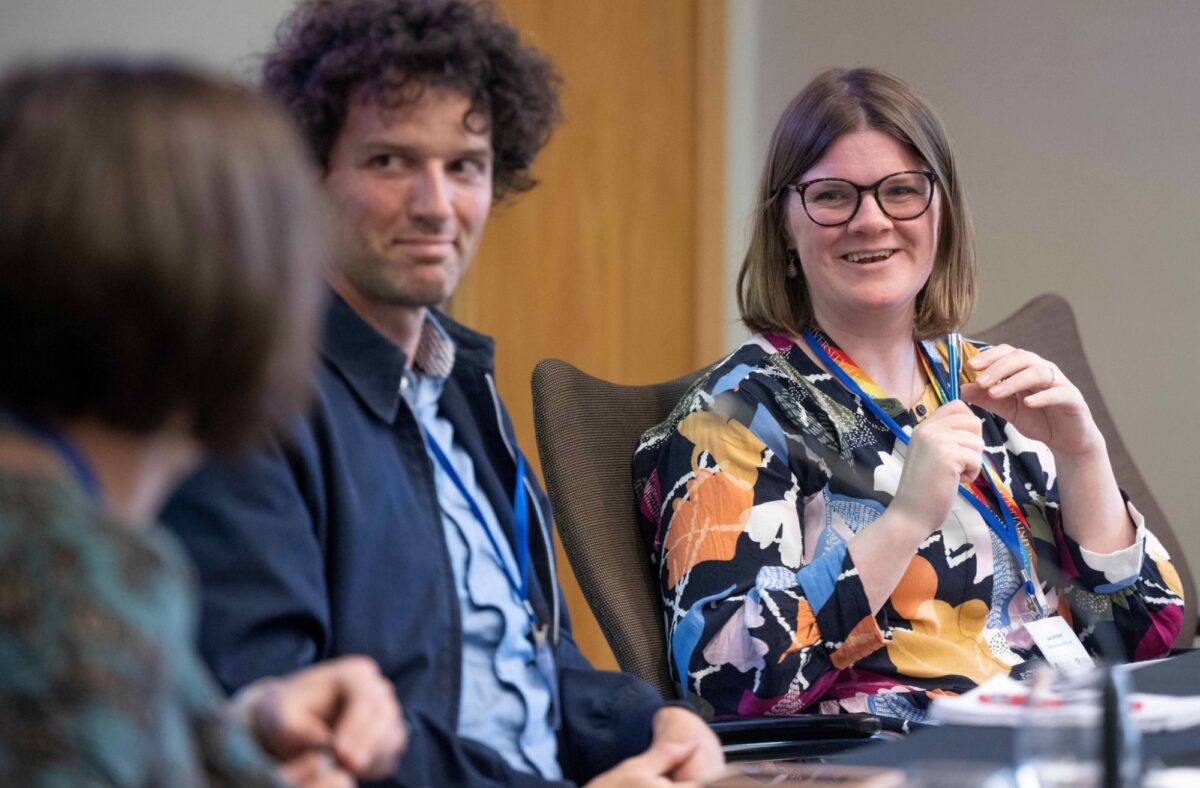
Two hundred academics and industry professionals came together this week for a series of workshops and discussions on the theme of collaborative innovation to tackle the climate and environmental crises.
The annual Edinburgh Innovations industry showcase and dinner changed to a more interactive format this year, partly, as the speakers said, in recognition of the multidisciplinary, cross-sector collaboration and agility required to tackle complex challenges like the climate emergency.
The Fast Forward conference concluded with summary reflections from a panel including Samantha Smith of NatWest Group and Sarah Murray of Forth Green Freeports. They agreed the phrase of the day had been “Go slow to go fast”, spoken by Dr Claire Haggett earlier in the day, meaning that taking the extra time needed to collaborate early on saves time later. Dr Haggett is a social scientist at the School of Social and Political Science, studying public responses to renewable energy developments.
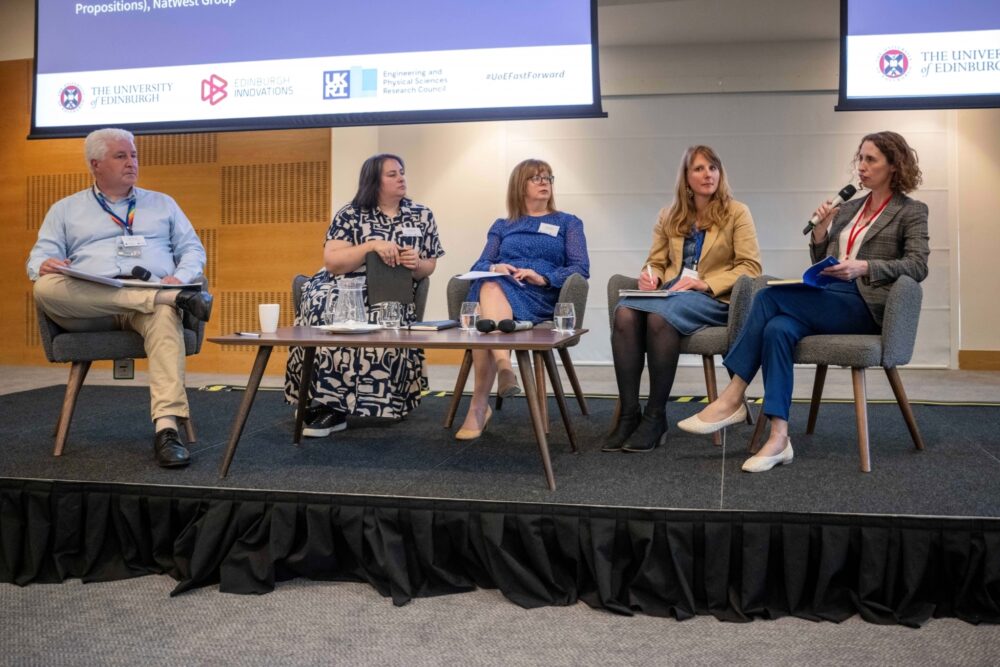
Co-host Dr Andrea Taylor, CEO of Edinburgh Innovations, said:
Tackling the climate and environment crisis requires a multidisciplinary, partnership approach. We have brilliant research happening at the University, such Professor Louise Horsfall’s work engineering bacteria to recover and recycle metals, but how do we get it out into the world? We need to dial it up a level.
This requires bringing the right stakeholders together, from industry, government, policy, legal and research, and making sure we have the right infrastructure in place, starting with decision-making. We did it during Covid; let’s apply the same approach to the climate sector. ”
The day spanned speed networking, exhibitions and workshops with key academic, industry and public sector participants on topics like clean energy systems, sustainable cities and climate and nature finance.
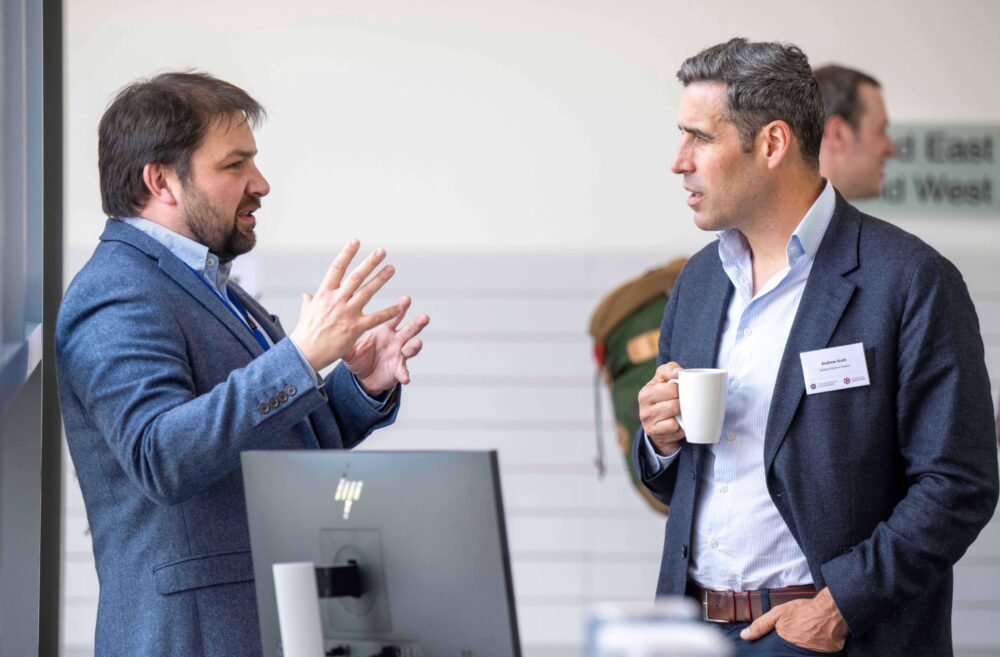
During a renewable energy panel, Andrew Scott, CEO of tidal energy technology company Orbital Marine Power, said the sector needed consistency in policy-making and governmental understanding of the infrastructure required if the industrial benefits were to be properly realised for the UK economy.
He described the benefits of working with the University of Edinburgh:
The globally unique FloWave facility has been crucial for us to be able to test our floating structure in a proper simulation of the marine environment before cutting steel.
We worked with a proactive, cutting-edge team modelling the wake interaction effect; we’re using the FastBlade tidal blade testing facility for our joint MaxBlade project, to develop the longest composite blades ever used in tidal stream. We’ve had PhD students placed with us through the IDCORE programme, who’ve been brilliant, and research done by the University has helped shape energy policy that has supported the sector. ”
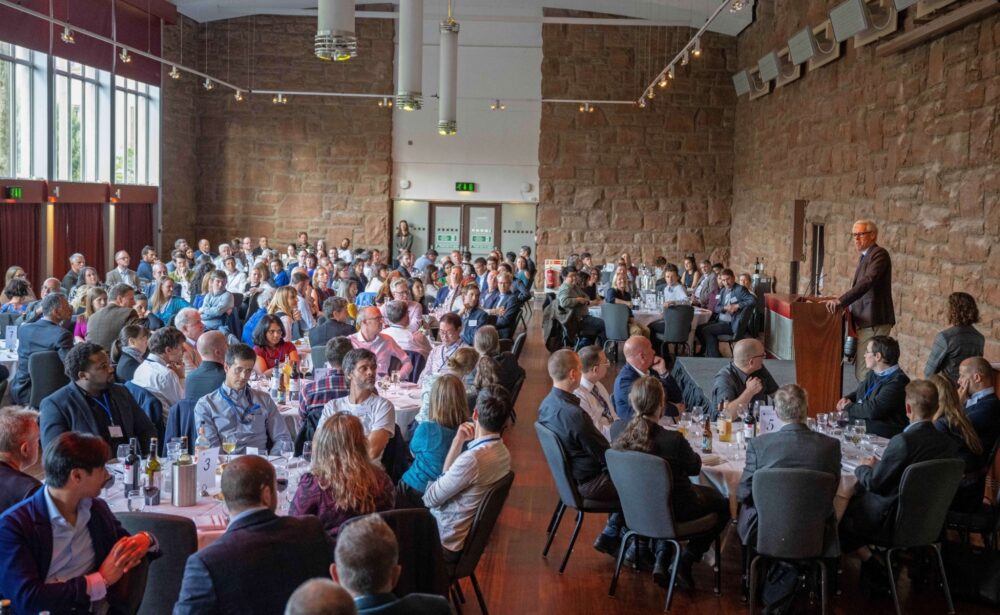
Co-host Professor Lindsay Jaacks, from the University’s Global Academy of Agriculture and Food Systems, outgoing director of the Edinburgh Earth Initiative, highlighted the importance of interdisciplinary collaboration, saying:
We may have the technology, but having it doesn’t guarantee its uptake by consumers and citizens – we need social scientists involved for that.
We need to accept that we may not have time for the perfect evidence we would like in order to act. And we need innovation – it’s worth noting that the University’s Innovation Fellowships, which protect time and allow researchers to learn the languages of other disciplines, were extremely oversubscribed. ”
The Fellowships, run by EI, form part of the University’s pioneering Innovation Career Pathway – a route to academic career development that elevates innovation alongside research and teaching, launched last week.
Professor Andy Mount, Dean of Research for the College of Science and Engineering, reminded the audience that the next collaborative Academic-Industry Meeting Day (AIMDay) on September 11 will be on the theme of climate and environment, and invited industry and public sector professionals to submit challenges that they would like academics to help with.
Submit an AIMday challenge on Climate and Environment by July 4 2025
